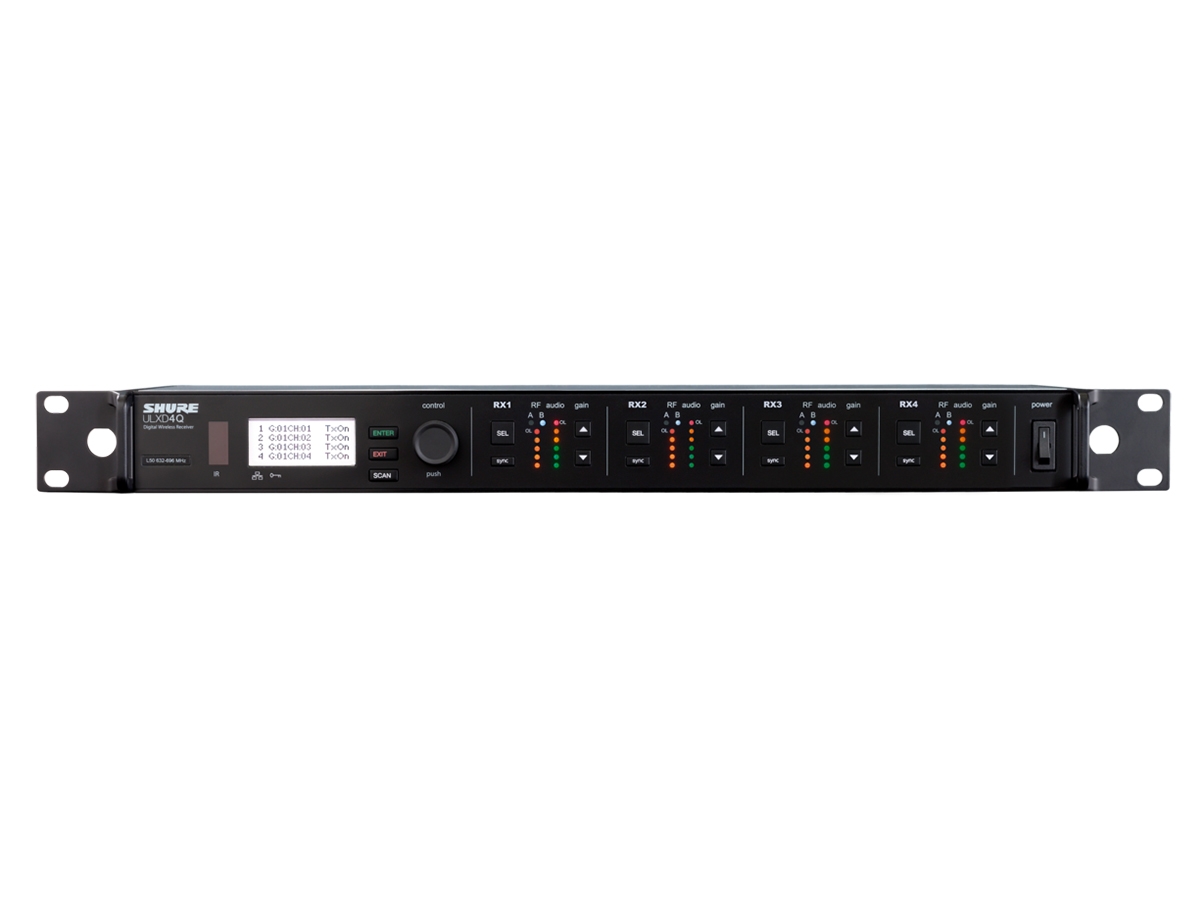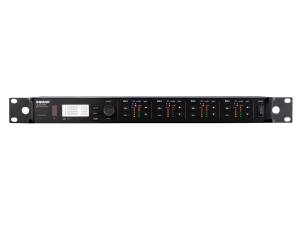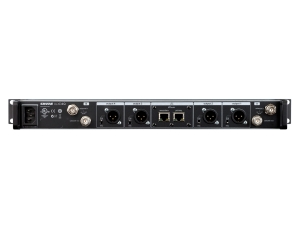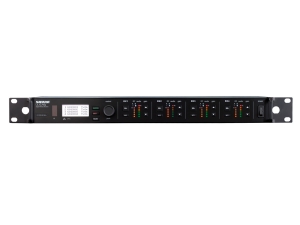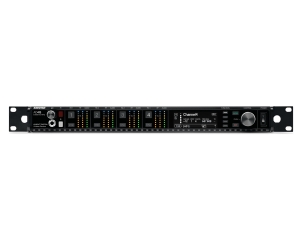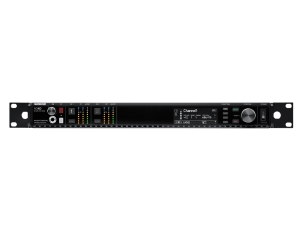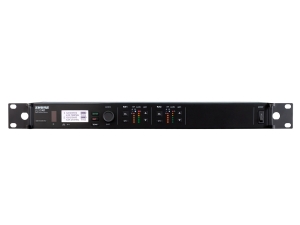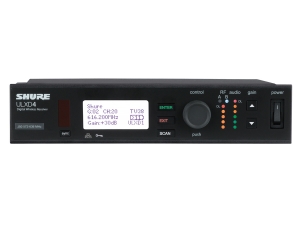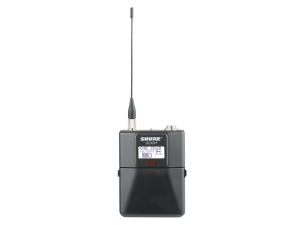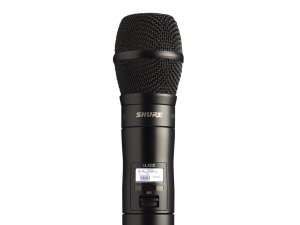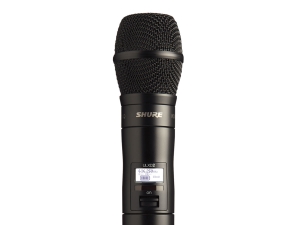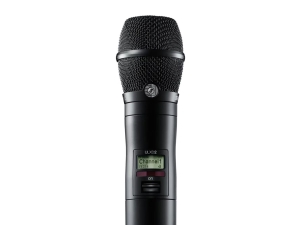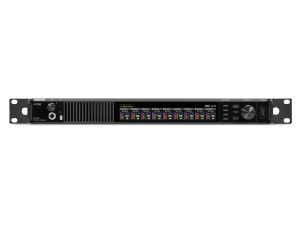SHURE ULXD4Q
Bộ thu micro không dây kỹ thuật số 4 kênh ULXD4Q
Bộ thu không dây kỹ thuật số 4 kênh cung cấp tùy chọn thông minh về dải tần và tần số RF phù hợp với bất cứ hệ thống âm thanh chuyên nghiệp nào.
Bao gồm tính năng Digital Predictive Switching Diversity, dải tần 64MHzm, mã hóa AES 256 cho bảo mật cao.
Bao gồm tính năng Digital Predictive Switching Diversity, dải tần 64MHzm, mã hóa AES 256 cho bảo mật cao.
Đã xem1269 lần
TÍNH NĂNG
- Bốn bộ thu micro không dây trong một vỏ kim loại chắc chắn với nguồn điện tích hợp
- Dải điều chỉnh lên đến 64 MHz (phụ thuộc vào khu vực)
- Tính năng quét được tối ưu hóa sẽ tự động tìm và ưu tiên các tần số sạch nhất và gán cho các transmitter thủ công qua đồng bộ hóa IR
- Tính năng chuyển tần số của Bodypack đảm bảo âm thanh của các chương trình quan trọng không bị gián đoạn
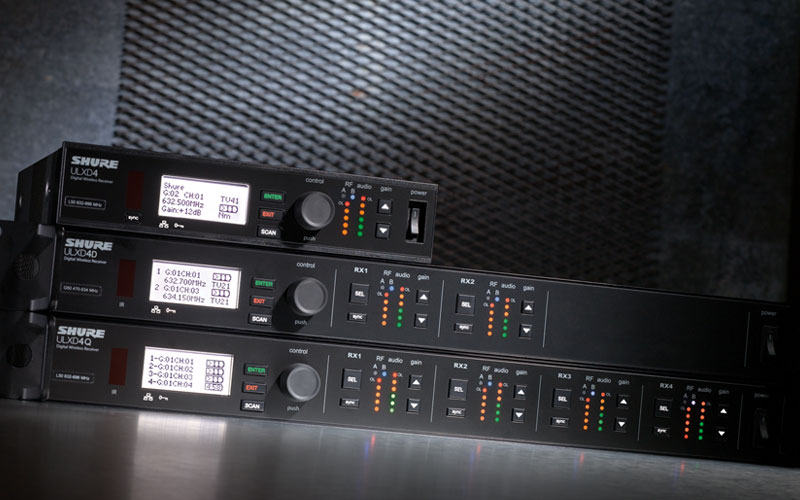
Các bộ thu một kênh, hai kênh và bốn kênh của hệ thống micro không dây kỹ thuật số ULXD
- Điều khiển Gain riêng (lên đến 60 dB), đồng hồ LED và đầu ra XLR cho mỗi kênh
- Tính năng tổng hợp âm thanh của hai hoặc nhiều đường âm thanh đến các tổ hợp đầu ra XLR, được điều khiển thông qua điều chỉnh gian
- Nối mạng Ethernet cho: điều phối và triển khai tần số hợp lý trên nhiều máy thu; tương thích với phần mềm Wireless Workbench® 6 để điều phối, giám sát và kiểm soát nâng cao
- Tương thích với hệ thống điều khiển AMX và Crestron
- Phát hiện và cảnh báo nhiễu
- Bảng điều khiển và menu LCD trực quan mặt trước máy với nhiều tùy chọn khác nhau, cùng với đồng hồ đo âm thanh và đèn LED RF với chỉ báo cao điểm
- Ăng ten nửa bước sóng có thể tháo rời
- Âm thanh kỹ thuật số 24 bit / 48 kHz
- Dải đáp ứng tần số 20 Hz - 20 kHz với đáp tuyến phẳng
- Dải động lớn hơn 120 dB
- Hỗ trợ lên đến 22 máy phát hoạt động trong một kênh TV 8 MHz ở chế độ tiêu chuẩn; Chế độ Mật độ cao cho phép lên đến 63 máy phát hoạt động trong một kênh TV 8 MHz
- Tín hiệu được mã hóa AES-256 bit để truyền không dây an toàn
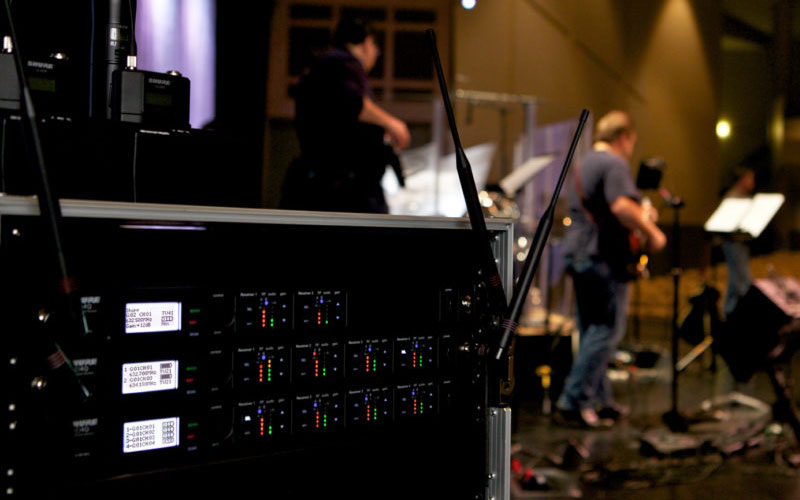
Tin liên quan
Biểu đồ tương thích của các thiết bị micro không dây ShureCó thể sử dụng hai (hoặc nhiều) bộ phát micro không dây (transmitter) với một bộ thu (receiver) không?
So sánh hai hệ thống micro không dây Shure Axient Digital và ULX-D
Các đầu micro không dây Shure phù hợp với Bộ phát cầm tay nào?
Bộ phát QLX-D có sử dụng được với bộ thu ULX-D và ngược lại không?
ULX-D System Specifications
- RF Carrier Frequency Range: 470–932 MHz, varies by region (See Frequency Range and Output Power table)
- Working Range: 100 m ( 330 ft)
Note: Actual range depends on RF signal absorption, reflection and interference.Note: Actual range depends on RF signal absorption, reflection and interference.
- RF Tuning Step Size: 25 kHz, varies by region
- Image Rejection: >70 dB, typical
- RF Sensitivity: −98 dBm at 10-5 BER
- Latency: <2.9 ms
- Audio Dynamic Range (A-weighted, typical, System Gain @ +10):
|
XLR Analog Output
|
>120 dB |
|
Dante Digital Output
|
130 dB |
- Total Harmonic Distortion (−12 dBFS input, System Gain @ +10): <0.1%
- System Audio Polarity: Positive pressure on microphone diaphragm produces positive voltage on pin 2 (with respect to pin 3 of XLR output) and the tip of the 6.35 mm (1/4-inch) output.
- Operating Temperature Range: -18°C (0°F) to 50°C (122°F)
Note: Battery characteristics may limit this range.
- Storage Temperature Range: -29°C (-20°F) to 74°C (165°F)
Note: Battery characteristics may limit this range.
- Receiver Output Level (The following table describes the typical total system gain from the audio input to the receiver outputs):
Receiver Output Gain
|
Output Jack
|
System Gain (gain control = 0dB) |
|---|---|
|
1/4" TRS
|
+18 dB |
|
XLR (line setting)
|
+24 dB |
|
XLR (mic setting)
|
-6 dB* |
*This setting matches a typical wired SM58 audio signal level.
ULXD4D & ULXD4Q
ULXD4D
- Weight: 3.36 kg (7.4 lbs), without antennas
- Power Requirement: 100 to 240 V AC, 50-60 Hz, 0.26 A max.
ULXD4Q
- Weight: 3.45 kg (7.6 lbs), without antennas
- Power Requirement: 100 to 240 V AC, 50-60 Hz, 0.32 A max.
ULXD4D & ULXD4Q
- Dimensions: 44 x 482 x 274 mmH x W x D
- Housing: steel; Extruded Aluminum
Audio Output
- Gain Adjustment Range: −18 to +42 dB in 1 dB steps (plus Mute setting)
- Configuration
|
XLR
|
balanced (1=ground, 2=audio +, 3=audio −) |
- Impedance: 100 Ω
- Full Scale Output
|
LINE setting
|
+18 dBV |
|
MIC setting
|
−12 dBV |
- Mic/Line Switch: 30 dB pad
- Phantom Power Protection: Yes
Cascade Output
- Connector Type: BNC
Note: For connection of one additional receiver in the same band
- Configuration: Unbalanced, passive
- Impedance: 50 Ω
- Insertion Loss: 0 dB
Networking
- Network Interface: Dual Port Ethernet 10/100 Mbps, 1Gbps, Dante Digital Audio
- Network Addressing Capability: DHCP or Manual IP address
- Maximum Cable Length: 100 m (328 ft)
RF Input
- Spurious Rejection: >80 dB, typical
- Connector Type: BNC
- Impedance: 50 Ω
- Bias Voltage: 12 to 13 V DC, 150 mA maximum, per antenna, switchable on-off

